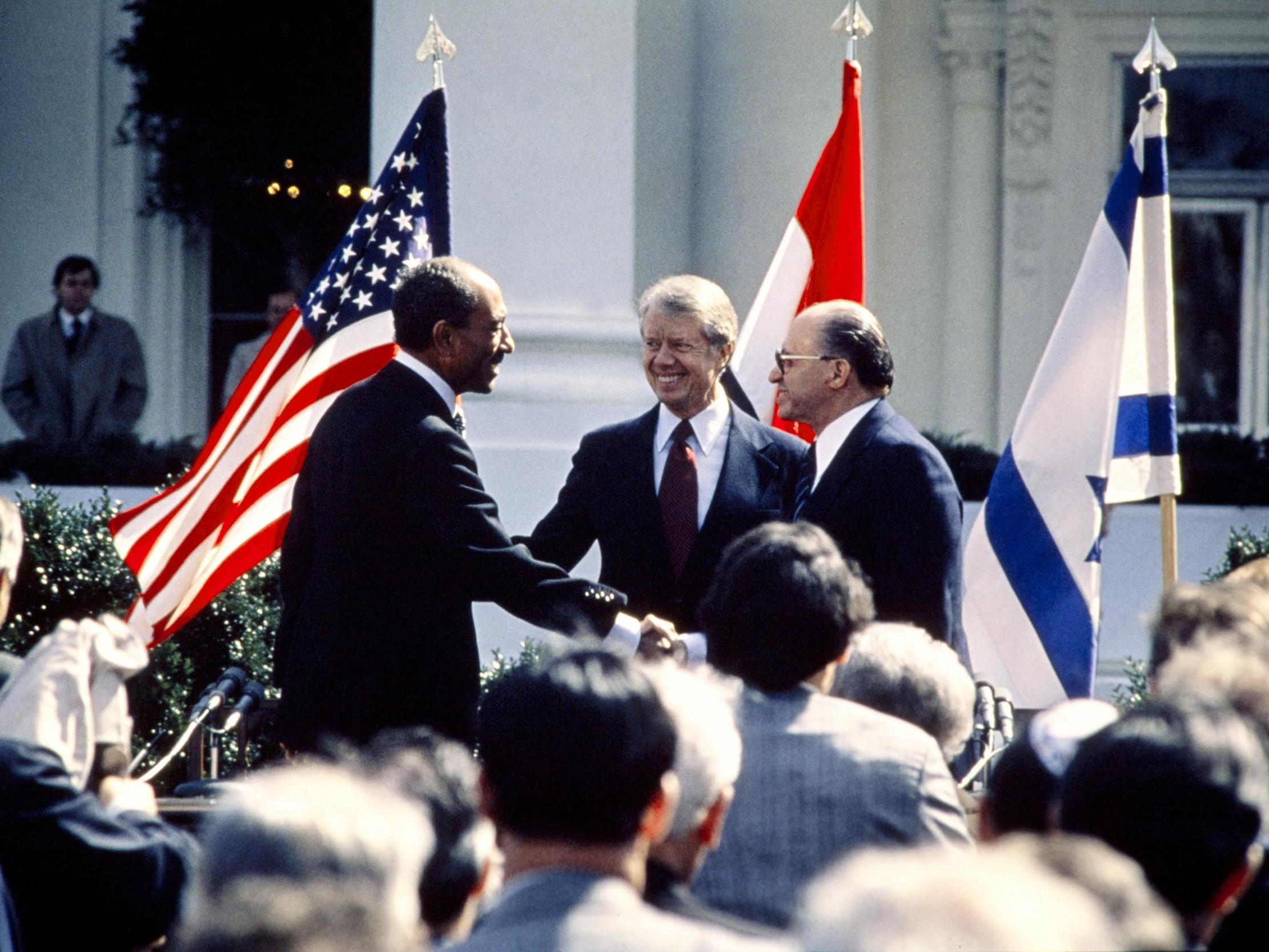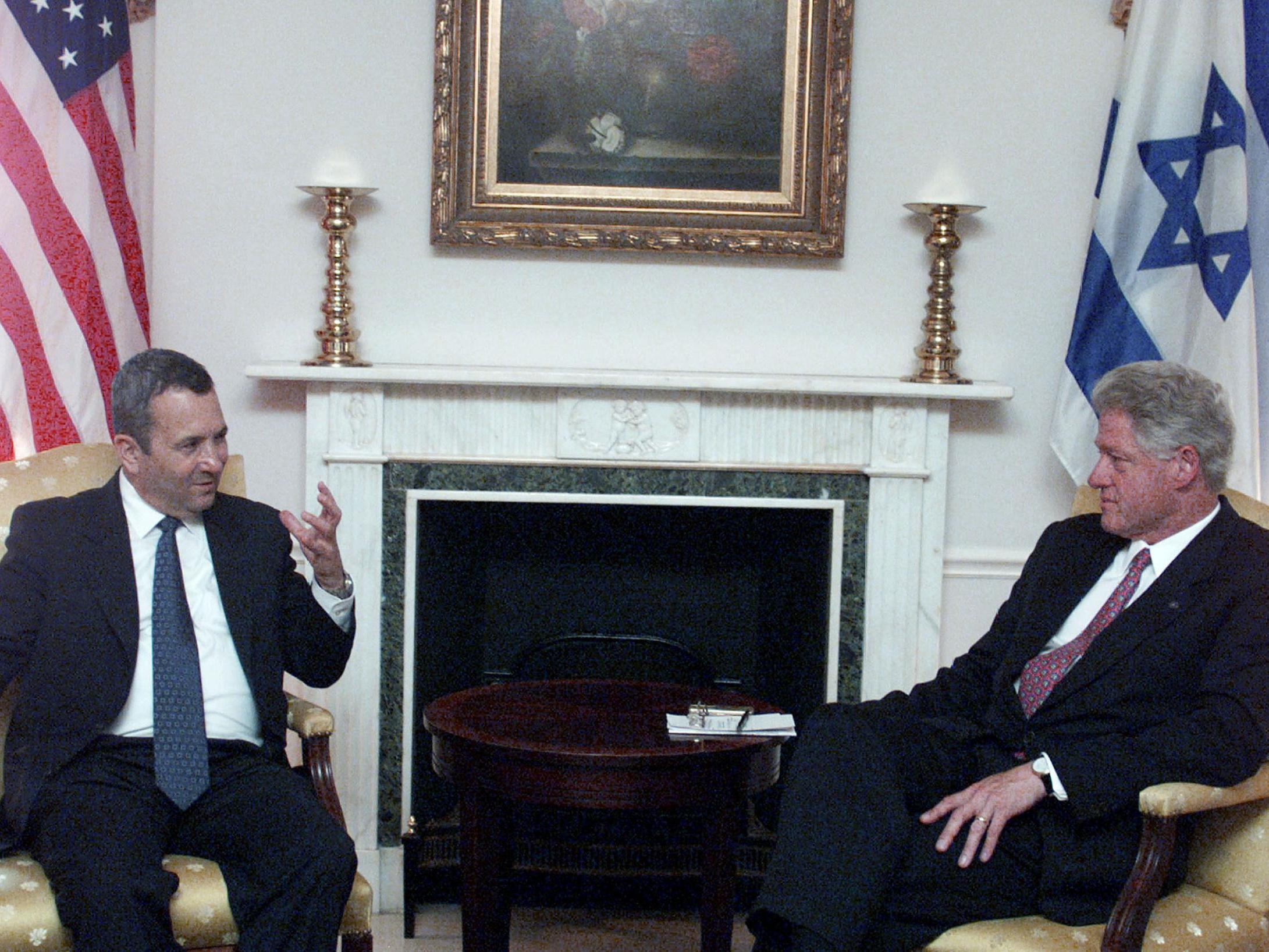Middle East peace plans of the US presidents from Harry Truman to Donald Trump
Billionaire businessman faces improbable odds in bid to resolve 70-year dispute
Your support helps us to tell the story
From reproductive rights to climate change to Big Tech, The Independent is on the ground when the story is developing. Whether it's investigating the financials of Elon Musk's pro-Trump PAC or producing our latest documentary, 'The A Word', which shines a light on the American women fighting for reproductive rights, we know how important it is to parse out the facts from the messaging.
At such a critical moment in US history, we need reporters on the ground. Your donation allows us to keep sending journalists to speak to both sides of the story.
The Independent is trusted by Americans across the entire political spectrum. And unlike many other quality news outlets, we choose not to lock Americans out of our reporting and analysis with paywalls. We believe quality journalism should be available to everyone, paid for by those who can afford it.
Your support makes all the difference.Donald Trump’s pledge to produce a “fair” plan to resolve the Israel-Palestine conflict sees him join the long line of statesmen to try to bring peace to the Middle East.
Since the founding of Israel on 14 May 1948 and the outbreak of the Arab-Israeli War, US presidents have experienced a complex relationship with the region, balancing their responsibility to promote secure democracy with competing national interests.
Harry Truman was in the Oval Office at the time of Israel’s inception and lobbied for a UN partition plan giving 57 per cent of the territory to Israel and 43 per cent to Palestine. It lost support from key member states as fighting broke out and President Truman moved to recognise the new nation 11 minutes after its birth in the name of pragmatism.
After a testy period under Dwight D Eisenhower in the 1950s, where a CIA-backed coup in Iran, intervention in Lebanon and the Suez Crisis made for strained relations with Middle Eastern nations, John F Kennedy sought to improve matters with friendly overtures and aid to Israel, a key strategic outpost during the Cold War.
In the Lyndon Johnson era, the president had plenty on his plate with civil unrest at home and the Vietnam War raging overseas, but the US was forced to turn its attentions to Israel with the Six-Day War breaking out in 1967. Israel conquered the West Bank and Gaza from Jordan and Egypt as well as Syria’s Golan Heights, prompting the Soviet Union to make a diplomatic intervention.
President Johnson put the US Navy’s Mediterranean Sixth Fleet on alert and drew Israel into a ceasefire, keen to contain the spread of Soviet influence.
The violence returned when Egypt, Syria and Jordan retaliated for their loss of land by attacking Israel on the Jewish holy day of Yom Kippur in 1973. Again finding itself squaring off against the USSR for control of the region, Richard Nixon’s administration finally convinced Israel to accept ceasefire terms.
Nixon’s secretary of state, Henry Kissinger, duly negotiated a string of “disengagement agreements” between 1974 and 1975, which brought stability but did nothing to resolve the Palestinian question at a moment when Yasser Arafat was working to unite Palestinian nationalists.
In 1978, Jimmy Carter mediated the Camp David Accord, paving the way for a peace deal between Israel and Egypt a year later, only for the outbreak of the Iranian Islamic Revolution to spark new tensions.

Sixty-three Americans were taken hostage at the Tehran embassy, all but 11 of whom were held for 444 days, before being released on the day of Ronald Reagan's inauguration, Carter’s presidency undone by a failed military rescue in which eight American servicemen were killed.
Under Reagan, the US again intervened to commit Israel to a ceasefire after it invaded Lebanon in June 1982 to restore order after the outbreak of civil war.
Reagan would prove an ally to Israel's governement, allowing the construction of Jewish settlements in territories many considered to be illegally occupied but was embarrassed on the question of the Middle East by the Iran-Contra Affair in 1986, when it emerged America had negotiated on an arms-for-hostages basis, contradicting the former Hollywood actor’s pledge he would never bow to terror.
While George HW Bush achieved little in relation to Israel and Palestine – becoming preoccupied with the Gulf War following Iraqi leader Saddam Hussein’s invasion of Kuwait – the Bill Clinton administration had a hand in the Oslo Peace Accord of 1993.
That deal allowed Palestinians to self-govern as the Palestinian Authority in the West Bank and Gaza but failed to secure answers on such fundamental issues as the rights of Palestinian refugees to return to the homes their families fled in 1948, the future of the settlements or of East Jerusalem.

Clinton persisted and brought Arafat and Israeli leader Ehud Barak around the table at Camp David in December 2000 but the summit collapsed without resolution.
George W Bush, like his father, went to war in the region, taking the fight against the Taliban after 9/11 to Afghanistan and Iraq. The War on Terror failed to establish peace and democracy, however, with Israel engaged in a summer war against Hezbollah of Lebanon in 2006, Iraq on its knees in civil war and tensions with the Palestinian militants of Hamas rumbling on the Gaza Strip.
Barack Obama was criticised for failing to advance the cause of peace with Benjamin Netanyahu and Mahmoud Abbas but did say towards the end of his tenure: “Israel must recognise that it cannot permanently occupy and settle Palestinian land.”
“We all have to do better as leaders in tamping down, rather than encouraging a notion of identity that leads us to diminish others.”
President Trump has already alienated the Palestinian leadership by relocating the US embassy from Tel Aviv in December 2017, therein recognising the holy city claimed by both sides as Israel’s capital. He has also slashed $500 million in aid to the Palestinians via the US contribution to the UN Relief and Works Agency.
His chances of realising his “dream” of bringing peace to a the region and a conflict that has raged for decades seem remote.

Join our commenting forum
Join thought-provoking conversations, follow other Independent readers and see their replies
Comments